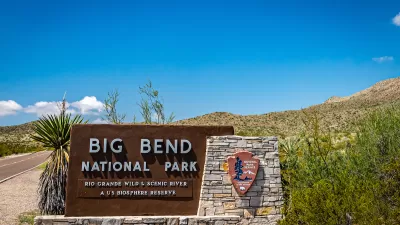During Australia's 12-year drought, cities like Brisbane cut water usage per-person-per-day by more than half. Andy Lipkis, the founder and president of TreePeople, believes Los Angeles can follow this example.
In the face of changing weather patterns due to climate change and with fewer trees today to capture, clean, and store rainwater, Lipkis argues that city residents must themselves collect as much of the resource as possible. Speaking at the USC Center for Sustainability’s Spring Forum titled "Envisioning Drought Resilient Cities," he shares the unprecedented success Australia experienced after its citizens installed rainwater-capture cisterns on their own homes. Relying on supplies in their backyards, he explains, changed Australians' relationship to water and encouraged them to conserve--along with harvesting drops that would otherwise be lost as runoff.
Predictions point to "hotter hots, wetter wets, and drier dries," leaving Southern California to prepare for increasingly extreme conditions. Lipkis sees this challenge as an opportunity to re-integrate water management, moving away from a system controlled by "bureaucracies that never talked to each other again like the tree talked to itself." As local agencies begin to work together on rainwater-capture solutions, Lipkis is hopeful that Los Angeles can follow Australia in dramatically decreasing demand.
He explains: "The City of LA throws away at least 3.8 billion gallons per inch of rainfall as runoff. Last month, when it rained 4 inches in one week during that storm, we threw away 13 billion gallons of water. We threw away 3.5 thousand gallons per person, for every one of the 4 million residents of the city. In the driest year in recorded history, we had a lot of water that we could have captured if we built a system like this... It’s going to take leadership, and leadership is emerging."
FULL STORY: Australia’s Rainwater Cisterns Inspire TreePeople’s Lipkis

Alabama: Trump Terminates Settlements for Black Communities Harmed By Raw Sewage
Trump deemed the landmark civil rights agreement “illegal DEI and environmental justice policy.”

Study: Maui’s Plan to Convert Vacation Rentals to Long-Term Housing Could Cause Nearly $1 Billion Economic Loss
The plan would reduce visitor accommodation by 25% resulting in 1,900 jobs lost.

Planetizen Federal Action Tracker
A weekly monitor of how Trump’s orders and actions are impacting planners and planning in America.

Wind Energy on the Rise Despite Federal Policy Reversal
The Trump administration is revoking federal support for renewable energy, but demand for new projects continues unabated.

Passengers Flock to Caltrain After Electrification
The new electric trains are running faster and more reliably, leading to strong ridership growth on the Bay Area rail system.

Texas Churches Rally Behind ‘Yes in God’s Back Yard’ Legislation
Religious leaders want the state to reduce zoning regulations to streamline leasing church-owned land to housing developers.
Urban Design for Planners 1: Software Tools
This six-course series explores essential urban design concepts using open source software and equips planners with the tools they need to participate fully in the urban design process.
Planning for Universal Design
Learn the tools for implementing Universal Design in planning regulations.
Caltrans
Smith Gee Studio
Institute for Housing and Urban Development Studies (IHS)
City of Grandview
Harvard GSD Executive Education
Toledo-Lucas County Plan Commissions
Salt Lake City
NYU Wagner Graduate School of Public Service



























